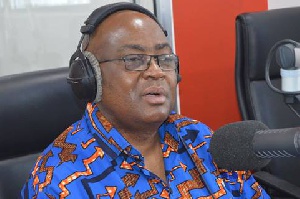Pollster Ben Ephson has hit out at the Institute of Economic Affairs (IEA) for suggesting that the National Commission on Civic Education (NCCE) does not have the wherewithal to organise a debate for presidential candidates ahead of the November 7 polls in Ghana.
The NCCE has hinted of organising a dialogue session for parliamentary candidates and flagbearers of political parties in Ghana.
The Communications Officer for the NCCE, Joyce Afutu, said “We [NCCE] are going to engage the political parties in the form of dialogue.”
She added: “We have what is called the dialogue series where we look at issues that citizens will need to be educated and empowered about. As part of our activities for the year we will firstly do a parliamentary debate for all candidates in the 275 constituencies to ensure that we bring the candidates face-to-face with the electorate for them to tell them what they will do and how they are going to do it, and then we will also engage with the presidential candidates to dialogue on issues they will want to know.”
But the IEA has expressed doubts that the NCCE will be able to organise such a programme.
Dr Ransford Gyampo, Research Fellow at the Governance Unit of the IEA, has said the NCCE is not financially resourced enough to be able to organise such a debate.
He told Class FM on Thursday May 12 that: “The NCCE has the constitutionally imposed mandate to ensure civic education and to socialise the populace, but in my view the NCCE can be described as one of the deficient constitutionally created independent bodies that we have in Ghana, and when you ask them they say it is because government has refused to honour them funding.”
“Their leaders themselves have not done enough to raise adequate funding to finance the activities of the NCCE.”
But Mr Ephson has said among the two institutions, the NCCE is better placed to organise the debate for the political parties.
He told Emefa Apawu on Class FM’s 505 News on Thursday May 12 that the recent backlash the IEA has suffered at the hands of political parties, especially the NDC and the NPP, for not engaging them before the announcement of the planned debate has shown the NCCE would do a better work than them.
“The IEA has had issues with one party at any given time and their inability to consult them is a bad omen for the institute,” he said, adding that: “I believe all the political parties should be consulted especially these two because they are the main parties. If they are expressing misgivings about you (the IEA) hosting it…I believe the NCCE will better placed to organise the debate.”
He suggested that the IEA can organise the debate under the auspices of the NCCE.
“If they want to organise it they can do it under the auspices of the NCCE, although they have their funding agencies to account to them,” he stressed.
General News of Friday, 13 May 2016
Source: classfmonline.com

















